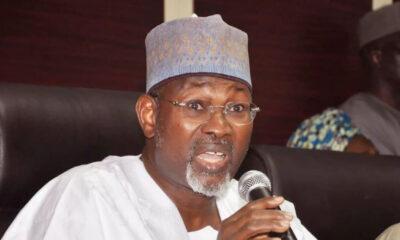News
IMF predicts 3.3% growth for Nigeria’s economy in 2024
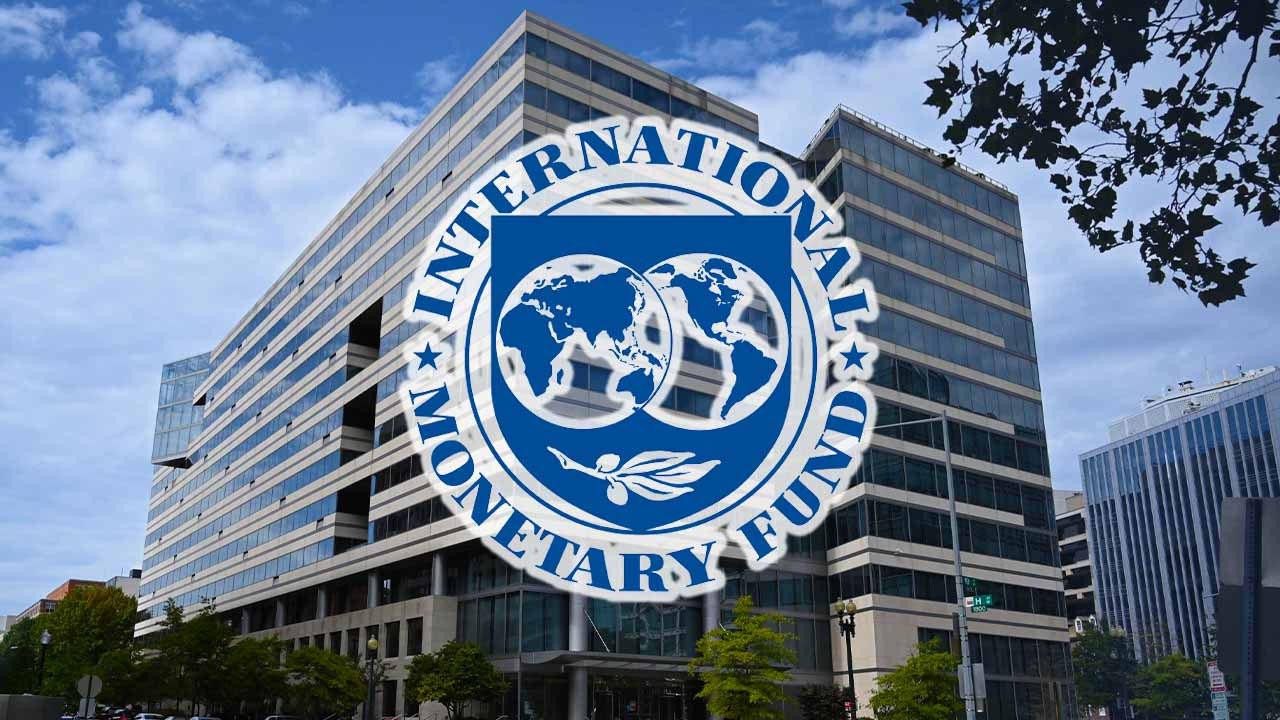
IMF predicts 3.3% growth for Nigeria’s economy in 2024
The International Monetary Fund (IMF) has adjusted upwards it’s forecast for Nigeria’s economic growth for the year 2024 to 3.3 percent.
This revision was announced in the IMF’s World Economic Outlook for April, which was released on Tuesday during the 2024 Spring Meetings of the World Bank and IMF in Washington, United States.
The updated forecast marks an increase of 0.3 percentage points from the previous 3.0 per cent growth prediction published in the IMF’s January 2024 World Economic Outlook.
However, the IMF has taken a more conservative stance for the year 2025, reducing Nigeria’s economic growth forecast to 3.0 per cent, a slight decrease from the 3.1 percent projected earlier in January.
Within the broader Sub-Saharan Africa region, the IMF has maintained its 3.8 per cent economic growth forecast for 2024 but has revised the 2025 forecast downward to 4.0 per cent, from the previously projected 4.1 percent.
READ ALSO:
- Suspected herdsmen kill 28 in fresh attack on Benue community
- Naira abuse: EFCC moves against Cubana chief priest
- Breaking: Dangote brings diesel prices down to N1000/litre
The global economic outlook also received a modest boost, with the IMF raising its growth forecast for 2024 to 3.2 percent, up from the 3.1 percent projected in the January 2024 World Economic Outlook. The forecast for 2025 remains unchanged at 3.2 percent.
The IMF stated, “Global growth, estimated at 3.2 per cent in 2023, is projected to continue at the same pace in 2024 and 2025.
“The projection for 2024 is revised up by 0.1 percentage point from the January 2024 WEO Update and by 0.3 percentage point to the October 2023 WEO forecast. Nevertheless, the projection for global growth in 2024 and 2025 is below the historical (2000–19) annual average of 3.8 per cent, reflecting restrictive monetary policies and withdrawal of fiscal support, as well as low underlying productivity growth.
The report further elaborates on the expected trends in various economies.
“Advanced economies are expected to see growth rise slightly, with the increase mainly reflecting a recovery in the euro area from low growth in 2023, whereas emerging market and developing economies are expected to experience stable growth through 2024 and 2025, with regional differences.”
Specifically for sub-Saharan Africa, the IMF projects an increase in growth from an estimated 3.4 per cent in 2023 to 3.8 per cent in 2024 and 4.0 per cent in 2025.
This positive outlook is attributed to the diminishing impact of previous weather shocks and gradual improvements in supply issues.
The forecast for 2024 remains consistent with the January 2024 WEO update, as negative adjustments for Angola due to a contraction in the oil sector are largely balanced by positive revisions for Nigeria.
IMF predicts 3.3% growth for Nigeria’s economy in 2024
News
Yahaya Bello reports to EFCC office with lawyers

Yahaya Bello reports to EFCC office with lawyers
A former Governor of Kogi State, Yahaya Bello, on Tuesday visited the Economic and Financial Crimes Commission (EFCC) to honour another invitation extended to him over alleged misappropriation of funds.
Bello went to the anti-graft office with his lawyers in the morning.
The ex-Kogi governor reportedly drove himself to the EFCC’s office in a black Toyota Hilux van with some lawyers.
He was said to have been taken by some operatives of the agency and are currently being grilled.
This is coming after the Supreme Court judgment which dismissed a suit brought by some state governments challenging the constitutionality of the agency.
The EFCC at the last hearing on November 14, sought the adjournment till November 27 in the fresh case it instituted against Bello.
It stated that the 30-day window was still running for the summons earlier issued.
News
Just in: Ebonyi governor suspends two commissioners, Perm Sec for misconduct
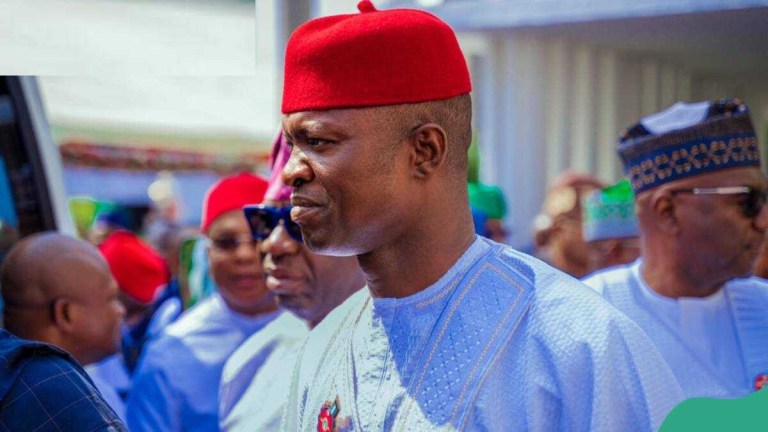
Just in: Ebonyi governor suspends two commissioners, Perm Sec for misconduct
Ebonyi State Governor Francis Nwifuru has announced the immediate suspension of two commissioners with a permanent secretary among others for gross misconduct.
Those suspended are the Commissioner for Housing and Urban Development Francis Ori, and the Commissioner for Health, Moses Ekuma, with the Permanent Secretary of the Ministry of Health.
The suspension followed an incident on Saturday night, when the governor reportedly visited the Ministry of Health’s premises and was said to have found six officials diverting government materials.
Others suspended for three months are the Executive Secretaries of the State Primary Healthcare Development Agency and the Ebonyi State Health Insurance Agency
The suspension order was announced by the state Commissioner for Information, Jude Okpor, who cited alleged misconduct and dereliction of duties as the reasons for the disciplinary actions.
Okpor made the disclosure on Tuesday during a press briefing on the outcomes of the State Executive Council meeting held on Monday at the New Government House in Abakaliki, the state capital.
“Following cases of gross misconduct and dereliction of duties by some government officials and matters related thereto, the Chairman of Council directed the indefinite suspension of the Honourable Commissioner for Housing and Urban Development and three months suspension of the Honourable Commissioner for Health, respectively
“In view of the development, the Special Assistant to the Governor on Primary Health was directed to take charge of the ministry in the absence of the suspended commissioner.
Governor Nwifuru directed the suspended government officials to hand over all government properties in their possession including vehicles to the Secretary to the State Government.
News
Why we’re borrowing despite surplus revenues – FG
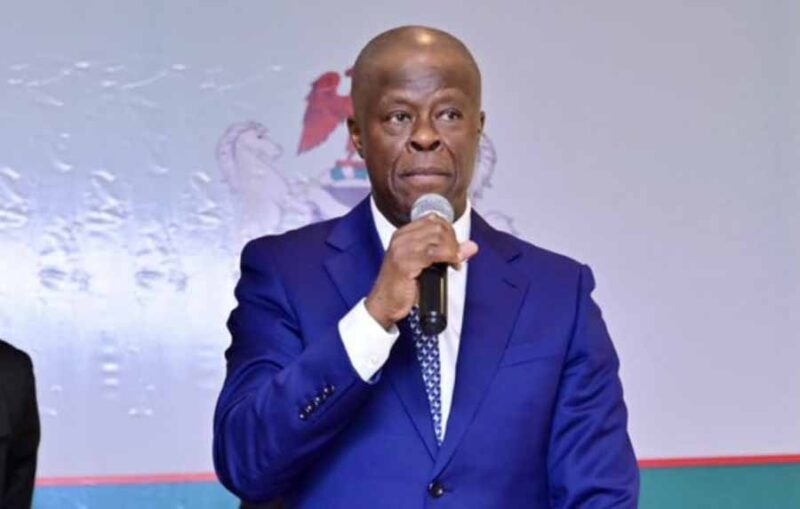
Why we’re borrowing despite surplus revenues – FG
The Federal Government has defended its decision to borrow to address budget deficits, despite surpassing revenue targets in 2024.
Finance Minister Wale Edun and Budget Minister Atiku Bagudu clarified this position during a session with the National Assembly’s Joint Committee on Finance, Budget, and National Planning. The meeting focused on the 2025–2027 Medium-Term Expenditure Framework (MTEF) and Fiscal Strategy Paper (FSP).
Last week, the National Assembly approved President Bola Tinubu’s $2.2 billion loan request to fund the N9.7 trillion deficit in the 2024 budget partially.
During the session, key agency heads, including Nigerian National Petroleum Company Limited (NNPCL) CEO Mele Kyari, Customs Comptroller-General Bashir Adeniyi, and Federal Inland Revenue Service (FIRS) Chairman Zacch Adedeji, presented their revenue reports.
The agencies reported exceeding their 2024 targets.
- Customs Service: Generated ₦5.352 trillion by September 30, surpassing its ₦5.09 trillion target for the year. For 2025, the agency projects ₦6.3 trillion, with a 10% increase planned for 2026.
- NNPCL: Achieved ₦13.1 trillion in revenue, exceeding the ₦12.3 trillion projection for 2024. Kyari announced a ₦23.7 trillion revenue target for 2025.
READ ALSO:
- Mixed reactions trail moves to privatise PH, Warri, Kaduna refineries
- Ronaldo’s brace propels Al Nassr toward AFC champions league quarters
- Nigeria would have been better under Peter Obi, too much nepotism under Tinubu – Senator Abaribe
- FIRS: Surpassed multiple tax collection goals, including ₦5.7 trillion from company income tax against a ₦4 trillion target. Education tax collections also exceeded expectations, reaching ₦1.5 trillion compared to a ₦70 billion target.
Overall, ₦18.5 trillion of the ₦19.4 trillion 2024 revenue target had been achieved by September, indicating the goal will be exceeded by year-end.
Despite these surpluses, the government insists borrowing remains essential to cover budget gaps and support vulnerable populations.
Bagudu explained, “Even with agencies exceeding revenue targets, borrowing is necessary to address deficits and boost productivity, particularly for the poorest. This aligns with Agenda 2050, which aims for a GDP per capita of $33,000.”
Edun also reiterated that loans were critical for adequately funding the budget.
The committee, led by Senator Sani Musa, questioned the rationale behind the borrowing and demanded further transparency. The Immigration Service was specifically asked to provide documents regarding an “unacceptable PPP arrangement” before the end of the week.
The session underscored the government’s balancing act between increased revenues and fiscal challenges requiring external borrowing.
Why we’re borrowing despite surplus revenues – FG
-

 metro19 hours ago
metro19 hours agoBREAKING: Port Harcourt refinery begins operation
-

 Business3 days ago
Business3 days agoJust in: Dangote refinery reduces petrol price for marketers
-

 metro2 days ago
metro2 days ago40-foot container falls on car in Lagos
-
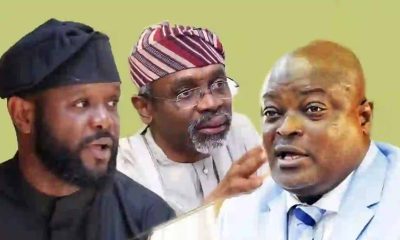
 Politics3 days ago
Politics3 days ago2027: Lagos Speaker, Obasa joins gov race, may battle Seyi Tinubu, others
-

 Politics2 days ago
Politics2 days agoLagos 2027: Seyi Tinubu campaign team releases his life documentary
-

 International2 days ago
International2 days agoTrump to sack 15,000 transgender officers from U.S. military: Report
-

 Entertainment1 day ago
Entertainment1 day agoPolygamy best form of marriage for Africa – Okey Bakassi
-

 metro2 days ago
metro2 days agoPolicewoman dismissed in Edo threatens to kill children, commit suicide



